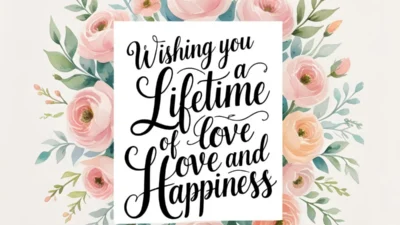Have you ever been called a “Karen” and felt your stomach drop?
It’s a label that stings, often thrown around to shame or mock someone for being demanding or entitled.
Whether it happened at a coffee shop, online, or during a heated moment, being called a Karen can leave you speechless, hurt, or even angry.
Knowing what to say when someone calls you a Karen can help you respond with confidence and grace, turning a negative moment into an opportunity for understanding.
This article shares practical tips, real-life scenarios, and examples to help you handle this situation calmly and effectively, no matter where it happens.
Understand Why They’re Calling You a Karen

The term “Karen” often describes someone perceived as entitled, rude, or overly demanding, especially in public settings. It’s a stereotype that’s exploded online, but it’s not always fair. Understanding the context can help you respond thoughtfully.
Scenario: You’re at a restaurant, and your order arrives cold. You politely ask for a replacement, but the server rolls their eyes and mutters, “Okay, Karen.”
What to Say: “I’m just asking for my food to be warm. Can we keep this respectful?” This shows you’re calm and focused on the issue.
What Not to Say: “Don’t call me that! You’re so rude!” This escalates the situation and makes you seem defensive.
Stay curious about their perspective—it can de-escalate tension and open a dialogue.
Stay Calm and Don’t Take It Personally
Being called a Karen can feel like a personal attack, but reacting emotionally often makes things worse. Staying calm shows you’re in control and helps you respond with clarity.
Scenario: You’re in a store, frustrated because an item is mispriced. When you point it out, the cashier snaps, “Chill, Karen.”
What to Say: “I’m not trying to cause trouble; I just noticed a pricing error. Can we fix it?” This keeps the focus on the problem, not the label.
What Not to Say: “How dare you call me that? I’m never shopping here again!” This can make you seem like the stereotype they’re accusing you of.
Take a deep breath and remind yourself that their words don’t define you. Responding calmly proves you’re not the stereotype.
Use Humor to Diffuse the Situation
A lighthearted response can break the tension and show you’re not taking the label too seriously. Humor works best when the situation isn’t too heated.
Scenario: You’re at a park, asking someone to leash their dog as posted rules require. They laugh and say, “Wow, you’re such a Karen.”
What to Say: “Haha, not quite Karen-level yet! Just trying to keep the park safe for everyone.” This keeps things friendly and redirects the conversation.
What Not to Say: “That’s so offensive! You don’t even know me!” This can make the situation more awkward.
Humor shows confidence and can turn a negative moment into a shared laugh, but use it wisely based on the vibe.
Redirect the Conversation to the Issue
Sometimes, people use “Karen” to dodge accountability. Refocus on the actual problem to keep the conversation productive.
Scenario: You’re on a customer service call, explaining a billing error. The representative sighs, “Ma’am, you’re acting like a Karen.”
What to Say: “Let’s stick to the billing issue. Can you help me resolve this error?” This shows you’re not distracted by the label.
What Not to Say: “I’m not a Karen! You’re just bad at your job!” This shifts focus to a personal argument.
By addressing the real issue, you show maturity and keep the conversation on track, avoiding unnecessary drama.
Know When to Walk Away
Not every situation deserves a response. If the person is just trying to provoke you, walking away can be the strongest move.
Scenario: You’re in a heated online debate, and someone comments, “Here comes Karen with her complaints again.”
What to Say: Nothing. Log off or mute the conversation to avoid feeding the negativity.
What Not to Say: “I’m not a Karen, you’re just ignorant!” This fuels the argument and gives them more attention.
Walking away doesn’t mean you’re weak—it means you value your peace over proving a point.
Educate Gently If the Moment Feels Right
If the situation allows, you can politely explain why the label isn’t helpful. This works best with someone open to dialogue.
Scenario: A coworker jokingly calls you a Karen when you ask for a meeting to be rescheduled.
What to Say: “Hey, I get the joke, but calling me a Karen feels unfair. I’m just trying to make this work for everyone.” This is kind but firm.
What Not to Say: “That’s so unprofessional! Don’t ever call me that!” This can shut down communication.
A gentle approach can build understanding without making the other person defensive.
Conclusion
Being called a Karen can catch you off guard, but knowing what to say when someone calls you a Karen gives you the power to respond with confidence.
Whether you stay calm, use humor, redirect the issue, or walk away, your response can show you’re not the stereotype.
Each situation is unique, so trust your instincts to choose the best approach.
By handling these moments with grace, you turn a negative label into an opportunity to show your true character.
Keep these tips in mind, and you’ll be ready to navigate this tricky situation anywhere it pops up.




